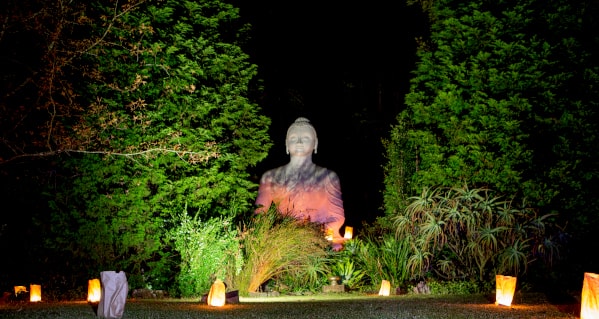BRC Newsflash - June 2025
|
|
||
The Buddhist Retreat Centre |
||
|
Ixopo, KwaZulu-Natal, South Africa |
For people of all religions |
|
|
BRC Newsflash: June 2025 Dear Friends, Please see the attached flyers for:
|
||
|
|
||
| Wesak lanterns | Image: Lisa de Venter | |
|
Jason Ross who is offering a retreat from 20-23 June “Buddhanalysis: What if Buddha was your psychoanalyst?” writes: If Buddha Was Found Sitting Under The Madeira TreeRegardless of the religious identity you might have been raised within, or the beliefs you may have later chosen for yourself, we all seem to function under the rule of a particular ideology: Capitalism. Capitalism is not just an economic system but a way of thinking that has penetrated almost every aspect of our daily lives. This form of logic permeates into how we relate to ourselves and others, how we spend our time, raise our children, and how we define what is supposedly meaningful in our lives. We used to think of Capitalism as simply a form of commerce, but with Musk standing alongside Trump in the Whitehouse, it has become increasingly evident that Capitalism has developed into a form of rule. What we don’t always realise is how Capitalism has surreptitiously entered into our everyday psychology. “I have invested so much in this relationship,” a husband complains to me in front of his wife. He is working towards a plea for them to have more sex. As if the relationship were a bank account, he believes he has been putting more in than he is getting out. This kind of transactional thinking turns love into a form of labour that we commodify: we increasingly treat each other as objects for our use. Under the expanse of privatisation, love and care increasingly become things that are up for purchase, something that we can trade. However, in reality, there is no fare exchange - not all labour is valued equally. Thinking of love and care as something that can be traded, leads to a confusion of love with ownership – to love something or someone is to “have” or “possess” them. Under the influence of Capitalism, we have become more and more orientated to the idea that life is a means for “having” rather than a means for “being” or existing. I want to “have” a lover, I want to “have” knowledge”, I want to “have” a good time. From a Buddhist perspective, however, such grasping is driven by illusion and contributes greatly to perpetual suffering because, in the end, “nothing is really me and nothing is truly mine”. |
||
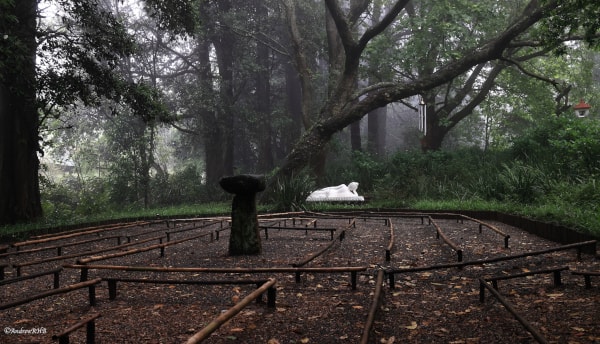 |
||
| Buddha, mist and leaves | Image: Andrew Brown | |
|
What do we refer to when we talk about Capitalism and how did this way of being in the world emerge? We like to think of Capitalism as a form of freedom – the freedom to buy and sell what we like in order to accumulate enough capital to do whatever we like with it. However, it would not be economically feasible, nor ecologically sustainable, for every individual on the planet to practice such self-orientated freedom. Not everyone gets to have their own private jet plane. But, what if it is not our birth right to get everything that we supposedly want? And, what if getting everything that you want is not even that pleasant? For the Buddha, having is not a lasting cure for Dukkha (often translated as “perpetual unsatisfactoriness”). Despite the doctrine of Capitalism (that “freedom” is the freedom to “have”) for the vast majority of people in the world this kind of “freedom” is not an option. The percentage of mega rich have become smaller in numbers yet greater in value, while the percentage of impoverished have become greater in numbers and are yet poorer than ever. As George Monbiot (the author of The Invisible Doctrine: The Secret History of Neoliberalism & How It Came to Control Your Life) puts it: “If wealth was the inevitable result of hard work and enterprise, every woman in Africa would be a millionaire.” Yet, we continue with this particular doctrine of “freedom” and it seeps into our psychology: It has become my moral duty be happy and if I am failing to be happy then I am not working hard enough at it. This kind of attitude steals from Darwinism and the notion of “survival of the fittest”: If you are either poor or unhappy then you are failing as a person; the world is a competitive market and those who succeed (no matter how they do so) will be rich and supposedly happy. Even though we associate Capitalism with commerce, the notion of commerce has been in existence for thousands of years. Capitalism is simply a distinct and more recent form of commerce that has its origin around 600 years ago. Its origins involve the commodification of land, labour and money – where these elements have one function: to be used to make more money. For Buddhism, such “raga” or “greed” is one of the essential “poisons” in our lives. Monbiot traces the origins of this kind of greedy system to the discovery of the island of Madeira. When Madeira was first discovered by the Portuguese settlers, it was a rare example of an uninhabited land. There was no one to claim rights to the land and so it was up for the taking. It also emerged that the production of sugar was incredibly profitable. The island was given the name Madeira due to the abundance of trees of that name. Such abundance of wood made this the ideal setting for refining sugar. But it took 60kg of Madeira wood to refine 1kg of sugar. A task that also required significant labour. Given there were no inhabitants on the island, the colonialists ventured to the Canary Islands and captured slaves. Madeira soon became the world’s primary source of sugar until the production started to collapse due to the sudden shortage of Madeira. And so, they moved on to the next island and burned their way through it in a similar fashion. This became the methodology that evolved into Capitalism, an obsession with production, growth, accumulation and expansion at any cost. Monbiot calls this method “boom, bust, quit”, a system that slowly expanded into a “colonial looting”. It is a system that turns common resources into private property for financial gain, destroying that which originally existed there (including cultures) in the process. A destructive process of extracting resources without replacing them that we contribute to every time we throw a piece of plastic in the bin after my free gym smoothie rewarded to me by my healthcare insurance: “Good boy!”. However, this system continues on a much greater scale, in a genocidal fashion currently unfolding live on Instagram. As the economist Yanis Varoufakis points out: Capitalism today is much more sophisticated and involves the phenomenon of “digital feudal lords” (via platforms such as Amazon, Google, Facebook) that increasingly monitor and control what we see, how we think, and what we do (including my healthcare insurance app). Hence the rise of Musk in America. |
||
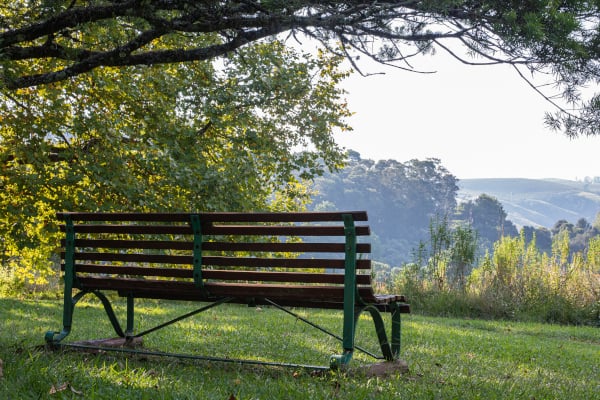
|
||
| Reflect | Image:S'bonelo Dlamni | |
|
We should, therefore, perhaps be weary of a growing therapeutic culture that is obsessed with personal “growth”; of tropes such as “everything happens for a reason” and that all pain is designed for my own development. Such a therapeutic culture deems sadness and anguish as a failure to “succeed”. But, often, sadness and struggle are part of an awakening, a response to seeing things how they really are. The current therapeutic culture’s pressure to always be “flourishing” ignores the social conditions that contribute to our suffering – our own and the suffering of those much worse off than us. It also ignores how my “flourishing” may be at the expense of others. This is why I am so grateful for the existence of the BRC: a place where an indigenous forest was re-planted and can be sustained; where we can gather as a community and reflect on teachings that address how we go about our lives, shifting our focus from a neurotic obsession with having to address the question of how to exist in the world as it currently unfolds. Jean Paul Sarte believed that we define what it means to be human in how we exist in the world, through every action and choice we make. His definition of “freedom” was preferable to that of Capitalism: “Man is condemned to be free; because once thrown into the world, he is responsible for everything he does. It is up to you to give [life] a meaning.” The BRC is a place for us to collectively reflect on how we shape our lives and how we give it its meaning. If the Buddha were alive today, it is unlikely that he would simply sit under a Madeira tree, contemplating the impact of Capitalism. I imagine him leading a peaceful protest, insisting that, in our current political and economic climate, focusing on why and how we exist is an act of rebellion. He would be sobbing his heart out for the children of Gaza, he would be encouraging community and solidarity, and offering a kind of love and care that asks for nothing in return. The Scottish Psychiatrist, R.D. Laing, remarks in Wisdom, Madness and Folly how during New Year celebrations, some of the most catatonic patients would suddenly come alive during the brief celebrations. He attributes these awakenings to the momentary feeling of “fellowship” that no drug or treatment could ever mimic. My pledge to you is to continue portioning some of your capital to the BRC, so that we can continue to sustain the land, the nourishing meals, the sacred Zendo, and opportunity for fellowship in establishing ethical ways to live. Jason Ross is a Psychologist with a PhD in Philosophy and Psychoanalysis. He practices as an Existential Analyst in Observatory, Cape Town, and offers an annual therapeutic retreat at the BRC on the meeting place between Buddhism, Psychoanalysis and Existential Philosophy |
||
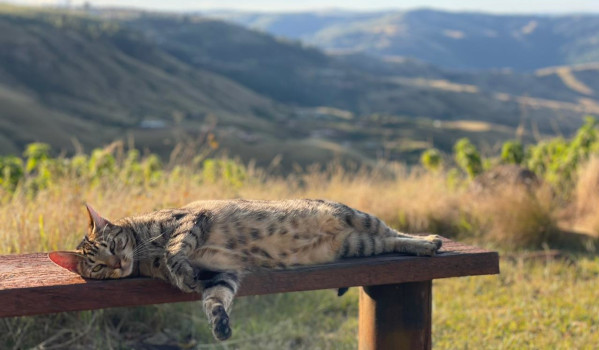
|
||
| Spice is nice | Image: Sharleen Lupke | |
The Wisdom Of Cats - Spice Is NiceTwo recent newspaper articles have got us talking about our resident cats at the BRC. One tells the tale of a tabby temple cat at Xi Yuan Temple in Zuzhou who ‘high-fives’ visitors, while the other honours the legacy of Skabenga, the legendary tabby from the Umhlanga Oyster Box. These stories sparked a delightful conversation about the BRC’s own tabby celebrity cat, Spice. Spice isn’t just any cat; he is the Centre's adorable ambassador. With his languid, welcoming presence, he has become a magnet for retreatants seeking cuddles and purrs - in between their meditation sessions, of course. When he’s not draped across his favourite couch in the shop or taking charge at the reception desk, you will find him musing in the Zendo or even practising his best ‘downward cat’ yoga pose or on “paw patrol”. Always affectionate, he sprinkles joy wherever he goes. In her charming article “Whiskers of Wisdom,” Bernelee Volmer notes that in Buddhism, animals are often seen as spiritual guides or “messengers of the gods.” Spice embodies this spirit. With his relaxed demeanour, playful antics, and zen-like presence, he lights up our hearts and spreads good vibes all around. He is cool, playful, content and very present - something we humans should aspire to. With Metta, |
||
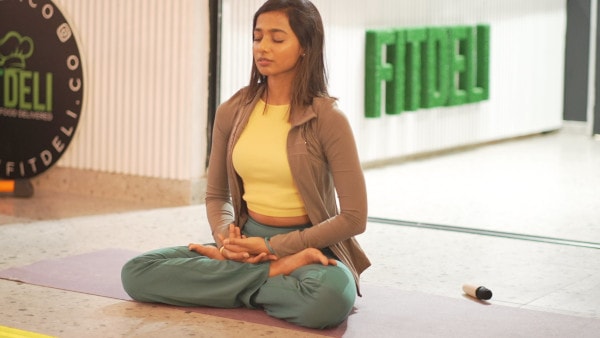 |
||
| Philosophy of posture with Sushmita | ||
There are still a few spaces left on the following May retreats:Unveiling The Deeper Layers of Yoga: The Philosophy Of PostureSushmitha Shrikanth | Weekend | 16-18 May A Retreat For Women With Yoga, Meditation And Your Astrological MoonMargarita Celeste and Michelle Strybis | Weekend | 23-25 May Change Your Mind - A Mindfulness RetreatMark Joseph | Weekend | 30 May-1 June |
||
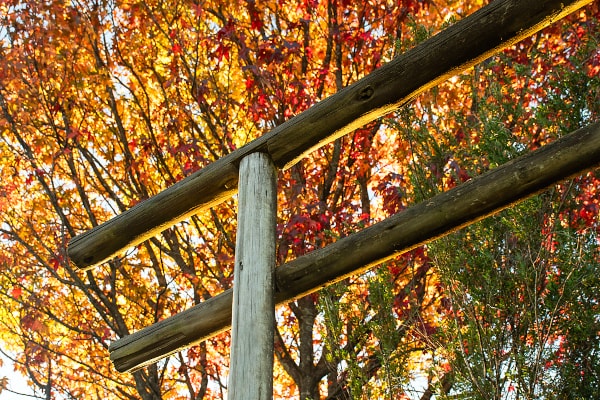 |
||
| Autumn colours | Image: Odette Ryan | |
Conducted Retreats June 2025☸ indicates retreats held in noble silence Journey To Self - Explore Your Connection With Your True SelfSadhna Hamchander and Ravika Ramnath | Weekend | 6-8 June Traditional Hatha And Raja Yoga – This retreat is FULLDuncan Rice | 3 days | 13-16 June Buddhanalysis: What if Buddha was your psychoanalyst?Jason Ross | 3 days | 20-23 June This retreat involves philosophical discussion, therapeutic engagement, a variety of sitting practices, walking meditation, basic yoga (no experience needed), written reflection and group discussion. It is an ideal retreat for those interested in a practical, therapeutic and atheist (non-soteriological) approach to Buddhism. Ishta Yoga And African SoundBuhle Mabanga, Zawadi Yamungu, Tinashe | 2 or 4 days | 27 June 1 July Doing Your Own Thing: A Personal RetreatWe are offering a 15% discount in May midweek |
||
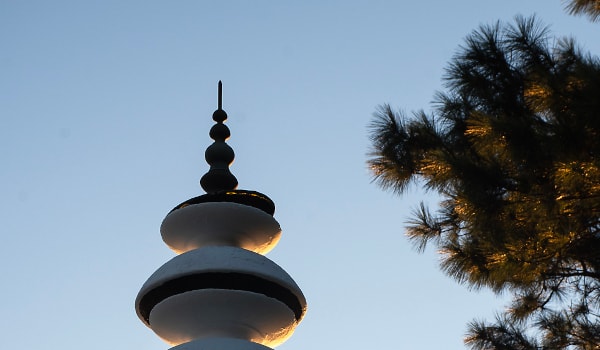 |
||
| Reaching for the sky | Image: Odette Ryan | |
About the BRCPerched on a ridge at the head of a valley in the Umkomaas river system in KwaZulu-Natal, the Buddhist Retreat Centre looks out on a vista of indigenous valleys, forests and rolling hills receding like waves in the blue distance. Here, for forty-five years, people of all religions and none have come to experience peace and tranquillity. It is a gentle, sympathetic space where one can be still and get in touch with oneself and reflect on the things that crowd one's life. The BRC was voted by CNN as one of the ten best meditation centres in the world. The BRC was awarded Natural Heritage status in 1995 under the auspices of the Department of Environmental Affairs and received a certificate to that effect signed by President Nelson Mandela for turning an eroded farm into the natural paradise it has become - thousands of indigenous trees were planted by retreatants under the supervision of Mervyn Croft - with 160 species of birds, including the Blue Swallow, otter, deer, antbear and indigenous forests. The Centre was also given the special status of “Custodian of the Blue Swallow” for its work in preserving the breeding areas of this endangered bird. The BRC facilitated the founding of Woza Moya, the community-based NGO, located in Ufafa Valley, twenty-two years ago, on the estate. Their vision is for all people in the community to be healthy and productive, to live in a safe and clean environment, with good access to services and social justice. The Centre continues to support the organisation by showcasing their crafts in the shop and sponsoring their trainers and consultants. We have been very touched by your appreciative letters, emails and friendship towards the BRC - your spiritual home from home. How you can help to keep the Dharma wheels turning at the BRC and continue its legacy for the future: Become a Spiritual friend by:
The continued existence of the Centre as a sanctuary for healing is dependent on the goodwill and support of our Sangha. Chrisi Visit our website for further information, directions, image gallery etc. |
||
|
|
||
|
The email was sent to: |
||

